O happy fault!
An e-mailing we will go!(2x)
High-ho-the-derry-o!
An e-mailing we will go!
Same caveats and apologies apply.
For the other articles on Mel Gibson's The Passion, look here and here.
(Warning - I went a bit nuts here. Long, delete if you'd prefer! :)
*cracking knuckles*
Just to begin with, let me say that I enjoy this exchange as well, and I hope that none of my comments come across with belligerence (although the occasional light-hearted swap is probably something I'll admit to being guilty of).
>Well, yeah, but it's still a 'rough cut', not a 'critics cut'.
And? In my book, the fact that it's rough *and still affects Miss-Picky-Me* is something worth noting. That I am not alone in a) being picky, b) seeing a rough cut and c) being driven to contrition and yes, joy in contrition - in fact in being driven towards "running the good race" makes this a greater achievement.
Likewise, I don't know - how many of you guys out there are into editing? I'm asking this as my computer is making a file of "The Real Love of My Life" from my production of Brigadoon that I edited last night. Anywho, so I've been showing my actors the rough-cuts and sometimes even the test cuts (that is, low LOW resolution - sort of what you'd see on my blog for "Bearskin") and this is the curious thing I've found. Despite the fact that the sound is bad, that I might add in one or two special effects later on, that there might be a bit of fine-tuning regarding color contrast and .03 seconds (literally) chopped or added here or there just for ease of transition, what the audience sees is the basic cut. And more, my own audiences have been able to view the rough low-res cuts without much distraction. They KNOW it's a rough low-res cut. They can see beyond that. In fact, the only major detraction would be me standing over their shoulder apologizing for all the subtleties that I know I need to fix.
So, if in my simple editing of plays (not even movies!), my audience is capable of seeing the final product and being affected, why can an audience member of Gibson's rough-cut (and much better rough cut than my poor stuff!) "The Passion" not similarly be capable of taking it's "in progress-ness" in stride?
Perhaps I just am not understanding what your contention is.
>I'm not familiar with her work either -- I just know what "the experts" say. :)
Ach, weel. Then I think it would be best for both of us to read not "the experts" but the lady herself, and then see the movie, and reread the Gospels and the Early Church Fathers, and THEN comment, eh?
>No, I don't think so. I raise the canonical issue simply because people keep saying that Gibson is "just being true to the gospel", as though there were no other influences on the film, when clearly there are.
Gotcha. Alright, I amend. Gibson is influenced by a) the Gospels primarily; b) tradition (which is what the Bible is based upon: see here - http://www.catholic.com/library/scripture_tradition.asp ); c) his own artistic judgement, aka contemplating what it would have been like for these people BUT - and this is important - *within the context of the Gospel.* That IS the defining point between Gibson and, let's say, Scorcese (or Andrew Lloyd Webber) - there is no Biblical foundation for Jesus and Mary Magdalene "getting it on" as my students would say. Take a look here for more: http://www.mark-shea.com/real.html
(And before we start getting into: "How can you [Emily] point me to a site of a "so-called expert" and then say I can't?" May I point out that, if you prefer, I could say what those who have written have said. However, they say it so much better than I! [Billy Goat Gruff anyone?] :)
Let me add, too: perhaps we would do well to recall (if you want to talk about oevres and genres and other -res) that "The Passion" is certainly a film in the style of Passion Plays, Pageants, and Medieval Drama. Ergo, it is based on the Gospels primarily, upheld by tradition, and augmented by the director/author's own meditations on the material. Consider it, please, as Gibson's meditation on the Gospel. His sermon. We don't stand up and throw the Good Book at our pastors when they preach, because they are meditating on Scripture. Rather we listen, we contemplate, we read the Gospel again, and in so doing we gain greater insight into the Gospels, into Christ. C. S. Lewis said of friendship that every friend brings out something new within himself, and therefore friendship is one of the only non-exclusive loves. I'd imagine that the same can be said for honest reflections on the Scripture.
>And yet he *was* the first person to raise the possibility, in public,
that his film might be controversial. Frank Rich deduces from this fact that Gibson has been baiting Jews all along. Rich might very well be wrong, but Gibson can't quite blame "the media" as though he hadn't fired the first shots or tried to use the media to his advantage, too.
I'm sorry - didn't Jesus say, "Blessed are you WHEN they persecute you for My Name's sake"? That's a rather important word there: WHEN. Not "if," not "should" - WHEN. "The Passion" was controversial the moment Gibson declared he would put it on. Go over and read Barbara Nicolosi's blog, you'll see the history of it. Beyond that, could you point me to Frank Rich's site again? And does he point me to what he himself is referencing? (I'm reminded of my honors profs quipping every five minutes or so, "Cite your source! Cite your source!")
>> I was able to meet some of the Legionnaries of Christ, too, who were
> with the crew while filming and it appears that the movie has been under attack from the beginning. Little wonder!
>Details?
Apparently, when filming in Rome (for the Praetorium scenes - nothing like authentic Roman architecture!), there was a lot of hoopla over the project. Unfortunately, Italy is degenerating into a secular pagan state. (Something I was saddened to witness even in '97 when I was over there.) They weren't happy with anyone filming about the Passion of Christ, and were apparently being snippy to Gibson - you know, the petty politics, the red tape, the libel, etc. So the Legionnairies of Christ - a fairly new order of priests in the Catholic Church, wonderfully orthodox and faithful to the magisterium (that means to Scripture and Tradition - see the Nicene Creed for further details) - showed up one day at the set. They weren't invited, but they stayed regardless. And they acted as go-betweens, to help keep the local nasty politics to a minimum, to help guide Gibson and his crew through the social mores and norms, and to acts as theological advisors - both for the content of the film, and as spiritual pastors for the members of the cast and crew. Since they grew so close to the cast and crew, when they held a retreat for campus ministers, they were able to convince the folks over at Icon Pictures to let them see the whole movie. This was the conference I attended.
>Again, I do not object to non-canonical elements in movies based on the gospels.
Excellent!
>I simply note these non-canonical elements to indicate that
those who say the film is "just being true to the gospel"
See above for what the definition of "being true to the Gospel" is that I meant, anyway.
>are apparently incorrect on that point, and I wonder what else they are incorrect on.
I'd need specifics here. We are getting down to matters of theology, not opinion. And I'd agree with you: if God is One, then to know Him means that is One, too.
>Um, no, not to the point where I would say I was "just taking dictation" (the equivalent of Gibson's "just directing traffic"), at any rate.
LOL - well, I'd say that in a few places of my writing, I felt like I was taking dictation! And certainly, when I'm directing, I'm aware that it's like the play is already directed, and I'm just verbalizing. I don't know that I'd quite equate it with prophecy, but I'm certain, again, that as it says in Hebrews, God does not leave us to flounder - esp. in such a crucial (or is that a Crucifix-al?) matter.
>> And you don't feel guilt when you think of what Christ suffered for you?
>Um, no. I do feel profound gratitude and awe and indebtedness and various other things when I ponder that subject, and I do feel guilt when I commit sins myself, but I don't put the two together so much -- like I say, I don't think God was planning on torturing all us sinners to death to begin with, nor do I think I would have been as bloodthirsty as the people who called for Jesus' death or who actually killed him.
OK, pardon me right now for being the religion teacher. And pardon me, too, for any consequent pedantics! To those who disagree with the theology I'm about to espouse, I ask pardon for any offense I might give. Look at what I'm about to write as an interesting explanation of the Catholic understanding of the meaning of suffering - an academic exercise, then, if you will. :)
1) Is God planning on torturing sinners?
No. No, no, a thousand times, no. His *plan* never included our torture, much less our downfall. His plan, however, did include our ability to make a choice between His plan and our own flawed - nay sinful (that is "lack of God") plans. Obviously, we chose our own plans at some point, and have from that moment had to suffer the consequences of our own actions.
When we sin, we choose nothingness, for we choose against God, or rather we choose "not God" which is by definition "nothingness." Hence, when we sin we are declaring our "desire" for nothingness - to BECOME nothingness, to "die the death" as it says literally in Hebrew in Genesis (in relation to what will happen to Adam and Eve if they eat of the Tree of the Knowledge of Good and Evil).
So in effect, when we choose sin, we choose death. For there is no life apart from God. He does not torture us; we torture ourselves. He does not decree the death penalty for us; we demand the death penalty for ourselves. (I won't go to comment now on the Culture of Death, but it is telling, non?)
2) Then what is God's plan?
Well, clearly God makes good from everything. As St. Augustine said, "O happy fault! O necessary sin of Adam!" Because we fell, because we chose to be sinners in need of a savior, God became our savior. Did He *have* to? Well, technically, God doesn't have to do anything. He certainly didn't *need* to make us, nor did He *need* to give us the choice to love Him freely. (In fact, He has no needs.) But rather, He chose to free us from our own nothingness Himself.
Now, can we argue that in some way God's Incarnation was part of His plan from the beginning? Certainly, some theologians have speculated as such. Me? I can't presume to know the mind of God. So I'll simply shout with St. Agustine, "O happy fault! O necessary sin of Adam, that won us such a Savior!"
3) But WHY did God become man?
I mentioned this before, I'll try to 'splain better. ("No, there is too much. Let me sum up. Humperdink is marry Buttercup in little less a half and hour...." ;P)
Who sinned? Man did. Therefore, who can make reparation for sin? Only man can make up for what man did. Think of the proverbial baseball through the window. The kid who threw the ball and broke the window is the one responsible for apologizing and repairing the window.
HOWEVER, if you're going to make up for something, you've got to make up for it perfectly. The guy whose window is shattered isn't going to be satisfied if the kid tapes together the pieces, or only repairs half the window, or pays a pittance for its restoration.
BUT, since we are now born with original sin and concupiscence (the sin of Adam and the tendency to sin), since we are in fact fallen through our own free will, we are incapable of making perfect restitution. It's as though the kid who threw the ball can't pay the full price of the window because he's SPENT most of his allowance on said ball.
WHAT'S A MAN TO DO? We're not playing ball with God. We owe Him, as was shown, by the very nature of sin, our *lives.* He gave us life, we threw it in His Most Adorable Face, spitting on it and refusing it and refusing Him, and if we have thrown away Life we have chosen death. Should we care to make restitution, we must first ask for our battered life back again, and then with no tools whatsoever (except those He gives us), we are meant to repair His gift - and repair it awkewardly and poorly because we keep abusing His gift again and again. We're in a very bad way.
WHAT DO WE NEED? Since through Adam came sin and death, thus through the New Adam must come grace and life. Since only God can give life, only God can be the New Adam (the first Man, indeed, the *only* Man). Since the reparation must be perfect, the New Adam must be perfect. Since no man from Adam on down is perfect, no "son of man" can be perfect...
UNLESS the "Son of Man" is also the "Son of God," or is in fact God Himself. God is perfect. God can perfectly restore the damage we have inflicted on ourselves. But God is the offended party. How can God make restitution to Himself? How can God make the restutition due Him *by man and man alone*?
AND THE WORD BECAME FLESH, AND DWELT AMONG US. Let's finish my imperfect analogy. God paying our price, is something like the man whose window was smashed BECOMING one of those children and then offering to pay the price to Himself. (I told you it was an imperfect analogy. So let's skip it and get to the meatier stuff.)
Since only man could make up for man's sin, and since man must make up perfectly but is incapable of doing so, God who is perfect and can make perfect restitution became man TO MAKE man's restitution.
Since man sinned and chose death, Christ the Giver of Life became man, became sin, became death, and gave us new life, gave us the graces (or sacraments) to remove sin, and conquored death. He who had never sinned, took upon Himself all our sin to expunge that sin from us. He who alone of all men bore no guilt, took upon Him the guilt of us all. "By His stripes, we are healed."
Since man deserved death (since he chose), God became man TO DIE. The price isn't one of silver and gold, or nice platitudes. The price is a life. A full, perfect unblemished life. And the only one who possesses such life is Life Himself.
Since God cannot die, yet was willing to die for us, God became man - a form that could die - and so He was able to pay the price.
Since God is Life, He could resurrect, He could conquor death. Since God paid the price, restitution has been offered AND accepted. (QED)
4) Then why, if God paid the price, should we ever bother with guilt again? Aren't we saved?
God paid the price, but in so doing, He did not consequently remove our free will. He opened the doors to Heaven, He repaired the "divine window" (if you will :) - but He still will not force us to enter. We must still choose life or death. "I put before you dusty death and life." Choose life.
So our salvation must be "worked out in fear and trembling." Think Augustine mixed with Einstein here. We're temporal beings. That is, we live in time. This is a fundamentally different state than angels, who live in what I'll call "the eternal now." (That may be a cheap way of getting out of explaining how their time works, but since I cannot possibly know HOW but know that it DOES work differently than ours, I hope you will forgive me. For a better proof see St. Augustine's "City of God.")
When the angels were created, they began in that "eternal now." They were given perfect knowledge and understanding, and they were given free will. Since in that moment, that eternal now, that neverending minute, they had the opportunity for choice - a choice that could never be rescinded since there was no "time" as it were to rescind it - they each exercised their free will once and for all (by our reckoning of time! Bear with me here). Some chose God, some chose eternal separation. For an angel, he really is "saved once, saved always" since "once" and "always" ARE the same for him.
However, since we humans have been given the awesome gift of time (remember only "for a little while we are lower than the angels"), that means that our each and every choice, as Lewis says, "turns us into a more and more heavenly or a more and more hellish creature." That is, although Christ has made restitution for us, although He has paid our debt, we still at every minute of every day have the opportunity to accept or reject His Sacrifice.
Let me put it this way. I sin every day. I hate it, but I manage to overeat, to procrastinate, to be surly to those around me, to you name it. What am I meant to do with those feelings of guilt that my conscience arouses in me? Can I simply say, "Ah well, I've thrown the proverbial ball through God's proverbial window again, but He's already paid the price so I won't worry about it." What will such a mentality lead me to? I feel the need to confess. I know I must accept God's judgement AND His mercy again. I know I have just chosen death once more - and even worse, chosen death when life has been bought so dearly for me.
While I am a temporal creature, my salvation cannot be fully assured. I myself assure that it cannot be so every time I sin. Since I live in time, I have not yet that "eternal now" which I shall encounter at my death. Since I live in time, my every action still affects whether I'm working out my salvation in fear and trembling or spitting from the sidelines.
5) GAH! WHAT?!??!?!?
OK, let me use another bad analogy. Paul keeps using the analogy of working out one's salvation like a racer training for the final sprint. So imagine that each of your actions (with the exception of, oh, "what sock color shall I wear" - you know) either trains you for the race of impedes you from the race. If I want to be in top form for Judgement, I must practice every day, watch my weight, get plenty of rest, keep my body, mind and soul healthy, active and keen to the best of my ability by the grace of God. But if I do so only intermittently, I won't run the best I could. If I don't do so at all, I'll never reach the goal. Most of us tend to do intermittent training. We'll do some stretches and then we'll eat a bag of potatoe chips. If we're REALLY sinning, it's more like we're shooting up drugs - something that really impedes us immediately from training.
There are two important words I ought to use properly. By salvation I mean "finally reaching Heaven." God alone makes this possible though His sacrifice and resurrection. But we can cooperate with His grace or deny it. However, I will never reach Heaven until I finally reach Heaven - just as I can't say that I've reached Barnes & Nobles until I've actually set foot in the store! The other word is justification. Justification is being on the right road to salvation, to Heaven. Again, God alone justifies us, but we must cooperate with His graces. I believe, as a Catholic, that Christ instituted the sacraments to justify us, to bring us back to the right road to Heaven.
And I believe that God works through many emotions - guilt and joy - to draw us towards His grace of justification (with an eye always to salvation!). The former, guilt, we Catholics call "imperfect contrition," that is repenting of our sins and embracing His sacrifice because we fear damnation. The latter, joy or better love, we Catholics call "perfect contrition," that is repenting of our sins and embracing His cross because we love Him so much that our heart breaks that we have inflicted any pain to His Most Precious Body whatsoever.
6) Yeeeeah, that Blood thing. That Body thing. That "He became sin" thing. That contemplating the Wounds - creepy.
Not when you think that He became sin, which means that every torture He endured - emotionally, mentally, physically - is OUR sin. That "He took upon Himself the chastisement of us all." In Catholic understanding, we frequently meditate on our mental sins when contemplating His crown of thorns - pride, envy, wrath, etc. - and our physical sins when we contemplate His scourging at the pillar - lust, avarice, gluttony, etc.
THIS is what "The Passion" inspired in me. To see Him bearing my sins upon His Perfect Flesh - to know that I am that person looking the other way, I am that Roman with the cat-o-nine-tails, I am that bad thief jeering the least of His people. Is it perfect or imperfect contrition? I'd like to think that my love for God grew because of this film. I think for myself I was inspired with more perfect contrition than I have felt before.
7) How can this be? How can GUILT lead to LOVE?
Well, all I can say is that we're weird creatures. But not as weird as the platypus. OK, sorry, all seriousness aside, haven't you ever noticed that the people you love the most are the ones you feel the most guilt for when you hurt them? I know when I've offended my sister, I'm simply MISERABLE, wracked with shame at my actions, BECAUSE I know I have hurt one who holds all my love.
In a way, "imperfect contrition" is guilt still mixed with pride - the fear is all for one's own sake, not for the sake of the one harmed. But this is the great thing about God's mercy - He'll getcha anyway He can. Perhaps it's through fear. Perhaps it's through love. Nevertheless the "hound of Heaven," our most perfect Lover, our glorious Creator and Savior simply *will not give up* on us.
We'll give up on us, sure. We'll drop our crosses, we'll join the Romans half-way through - and remember that our greatest *saints* have said that the closer they draw near to God, the more they see how very far they still have to go! None of us are exempt from free will, concupiscence or time. But God will not falter. "Although a mother forsake her child, I will not abandon you."
8) So, um, you're advocating going around flagellating ourselves, right? (Images of Monty Python lurk in the distance...!)
No. I'm not asking you to get out the cane. But I hope that you - I hope that I! - realize that, again, to grow more deeply in love with someone is to join in their suffering. Go watch "Shadowlands." Great movie. To live is to feel the full gamut of emotion. To Live in Christ is to feel every emotion He did as well. To live is to live in the "romance of orthodoxy" as Chesterton calls it - to have our valiant knights on the cusp of disaster, to fight Tolkien's "long defeat," to "fight when your arms are too weary," and YET to be joyful.
We Catholics have so many feast days! For yes, we know that our Redeemer lives. Again as Joy Gresham says in "Shadowlands" - "the sorrow then is part of the happiness now." Good Friday is inextricable from Easter. We feel the joy of the Resurrection so much more keenly because we have known the heartache of the Crucifixion. We feel greater love for our God because He sacrifice so much. We feel His mirth because we can share in the divine joke. As one preacher put it, "It's Friday - but Sunday's a-comin'!"
I need not fear sorrow (nor the arrow that flies by day!) BECAUSE my God has taken upon Himself all sorrow. In fact, I may embrace my sorrow, I may unite my sorrow with His, and therefore gain His peace that surpasses all understanding. I may share in His redemptive suffering.
9) Redemptive whosawhatseying? Are you claiming that Christ's sacrifice wasn't enough? Or isn't once and for all?
God forfend! No! Rather, I'm saying with Paul ("I make up what is lacking in the sufferings of Christ") that BECAUSE Christ suffered, died and rose once and for all, my own meagre offerings of suffering, of daily martyrdom, and moments of grace HAVE MEANING. I can offer up my suffering to Christ for His use. My little aches and pains, my daily torments I can offer to Christ and as He transformed our weakness into His glory, so He will transform my humble offering into the greatest prayer. Suffering has meaning BECAUSE of Christ. "Take up your cross and follow me." To where? To Calvary, to Easter. But first to Calvary, because without Calvary, there is no Easter.
10) I'm still not seeing the joy element here.
Joy? Joy unbounded! No longer do I live in the Shadowlands. No longer need I rely on "good dreams." No longer do I hope for the Elysian Fields - a sort of nebulous "not as badness" - now I hope for full union with Christ! No longer do I live in moral relativity, now I may shout "He is alive! And He has come with a sword." Things are more vibrant BECAUSE Christ came and "made all things new."
"Thy will be done, Thy kingdom come," is not a platitude; He Himself said, "This day these words [that the Kingdom of God is at hand] have been fulfilled in your presence." We are citizens of the Kingdom of God by virtue of our baptism (see Acts, see "City of God," and others). We have the hope of the everlasting Eden, and the "taste" (indeed, for Catholics the taste!) of Heaven on Earth. Think of the wonders, the certainty, the thrilling sharpness of Eden. Think of the newness of the Earth. Think of the marvel of our bodies, of the grace of time, of the adventure of free will. THIS is what contemplating the Passion whips up in me. I dare to hope because I have been reminded that I must hope. I dare to have faith because I have been reminded at what price He renewed that faith. I dare to love because He showed us perfect love.
Perfect love is sacrificial. Every mother knows this. Perfect love means that you long for the beloved so much that you would rather take their suffering upon yourself. This Christ did for us. He loved us so much He took our suffering upon Himself. And yet He is not selfish - He knows that in order to even begin to love Him, we must share in a *part* of His suffering, too. "Purified as though through fire" as Paul says. O, let me Love as He loved! Or as Paul elsewhere says, "Husbands, love your wives as Christ loved the Church, loving not His own life, but giving it up to sanctify His bride. This is a great mystery."
And that's where I'll end my ramblings. This is a great mystery, that love and sorrow should be so combined. This is a great mystery, and even if we do not fully comprehend it (I'm sure I don't!), even if we can't fully understand it (although movies like "The Passion" certainly helped me!), the graces of God's love and sacrifice are still available to us - perfectly or imperfectly; in awareness, and in awe of He who is the *greatest* mystery.
Mood: Je suis fatigue, mais bon, merci
Music: Surprisingly none. Intermittant "Tango" as I futz with the final cut.
Thought: Why can't there be more hours in the day? *sigh* I've got to remember to take time for myself. I'm ridiklewackle. Proof once again that the worst curse of Adam is forgetfulness.
An e-mailing we will go!(2x)
High-ho-the-derry-o!
An e-mailing we will go!
Same caveats and apologies apply.
For the other articles on Mel Gibson's The Passion, look here and here.
(Warning - I went a bit nuts here. Long, delete if you'd prefer! :)
*cracking knuckles*
Just to begin with, let me say that I enjoy this exchange as well, and I hope that none of my comments come across with belligerence (although the occasional light-hearted swap is probably something I'll admit to being guilty of).
>Well, yeah, but it's still a 'rough cut', not a 'critics cut'.
And? In my book, the fact that it's rough *and still affects Miss-Picky-Me* is something worth noting. That I am not alone in a) being picky, b) seeing a rough cut and c) being driven to contrition and yes, joy in contrition - in fact in being driven towards "running the good race" makes this a greater achievement.
Likewise, I don't know - how many of you guys out there are into editing? I'm asking this as my computer is making a file of "The Real Love of My Life" from my production of Brigadoon that I edited last night. Anywho, so I've been showing my actors the rough-cuts and sometimes even the test cuts (that is, low LOW resolution - sort of what you'd see on my blog for "Bearskin") and this is the curious thing I've found. Despite the fact that the sound is bad, that I might add in one or two special effects later on, that there might be a bit of fine-tuning regarding color contrast and .03 seconds (literally) chopped or added here or there just for ease of transition, what the audience sees is the basic cut. And more, my own audiences have been able to view the rough low-res cuts without much distraction. They KNOW it's a rough low-res cut. They can see beyond that. In fact, the only major detraction would be me standing over their shoulder apologizing for all the subtleties that I know I need to fix.
So, if in my simple editing of plays (not even movies!), my audience is capable of seeing the final product and being affected, why can an audience member of Gibson's rough-cut (and much better rough cut than my poor stuff!) "The Passion" not similarly be capable of taking it's "in progress-ness" in stride?
Perhaps I just am not understanding what your contention is.
>I'm not familiar with her work either -- I just know what "the experts" say. :)
Ach, weel. Then I think it would be best for both of us to read not "the experts" but the lady herself, and then see the movie, and reread the Gospels and the Early Church Fathers, and THEN comment, eh?
>No, I don't think so. I raise the canonical issue simply because people keep saying that Gibson is "just being true to the gospel", as though there were no other influences on the film, when clearly there are.
Gotcha. Alright, I amend. Gibson is influenced by a) the Gospels primarily; b) tradition (which is what the Bible is based upon: see here - http://www.catholic.com/library/scripture_tradition.asp ); c) his own artistic judgement, aka contemplating what it would have been like for these people BUT - and this is important - *within the context of the Gospel.* That IS the defining point between Gibson and, let's say, Scorcese (or Andrew Lloyd Webber) - there is no Biblical foundation for Jesus and Mary Magdalene "getting it on" as my students would say. Take a look here for more: http://www.mark-shea.com/real.html
(And before we start getting into: "How can you [Emily] point me to a site of a "so-called expert" and then say I can't?" May I point out that, if you prefer, I could say what those who have written have said. However, they say it so much better than I! [Billy Goat Gruff anyone?] :)
Let me add, too: perhaps we would do well to recall (if you want to talk about oevres and genres and other -res) that "The Passion" is certainly a film in the style of Passion Plays, Pageants, and Medieval Drama. Ergo, it is based on the Gospels primarily, upheld by tradition, and augmented by the director/author's own meditations on the material. Consider it, please, as Gibson's meditation on the Gospel. His sermon. We don't stand up and throw the Good Book at our pastors when they preach, because they are meditating on Scripture. Rather we listen, we contemplate, we read the Gospel again, and in so doing we gain greater insight into the Gospels, into Christ. C. S. Lewis said of friendship that every friend brings out something new within himself, and therefore friendship is one of the only non-exclusive loves. I'd imagine that the same can be said for honest reflections on the Scripture.
>And yet he *was* the first person to raise the possibility, in public,
that his film might be controversial. Frank Rich deduces from this fact that Gibson has been baiting Jews all along. Rich might very well be wrong, but Gibson can't quite blame "the media" as though he hadn't fired the first shots or tried to use the media to his advantage, too.
I'm sorry - didn't Jesus say, "Blessed are you WHEN they persecute you for My Name's sake"? That's a rather important word there: WHEN. Not "if," not "should" - WHEN. "The Passion" was controversial the moment Gibson declared he would put it on. Go over and read Barbara Nicolosi's blog, you'll see the history of it. Beyond that, could you point me to Frank Rich's site again? And does he point me to what he himself is referencing? (I'm reminded of my honors profs quipping every five minutes or so, "Cite your source! Cite your source!")
>> I was able to meet some of the Legionnaries of Christ, too, who were
> with the crew while filming and it appears that the movie has been under attack from the beginning. Little wonder!
>Details?
Apparently, when filming in Rome (for the Praetorium scenes - nothing like authentic Roman architecture!), there was a lot of hoopla over the project. Unfortunately, Italy is degenerating into a secular pagan state. (Something I was saddened to witness even in '97 when I was over there.) They weren't happy with anyone filming about the Passion of Christ, and were apparently being snippy to Gibson - you know, the petty politics, the red tape, the libel, etc. So the Legionnairies of Christ - a fairly new order of priests in the Catholic Church, wonderfully orthodox and faithful to the magisterium (that means to Scripture and Tradition - see the Nicene Creed for further details) - showed up one day at the set. They weren't invited, but they stayed regardless. And they acted as go-betweens, to help keep the local nasty politics to a minimum, to help guide Gibson and his crew through the social mores and norms, and to acts as theological advisors - both for the content of the film, and as spiritual pastors for the members of the cast and crew. Since they grew so close to the cast and crew, when they held a retreat for campus ministers, they were able to convince the folks over at Icon Pictures to let them see the whole movie. This was the conference I attended.
>Again, I do not object to non-canonical elements in movies based on the gospels.
Excellent!
>I simply note these non-canonical elements to indicate that
those who say the film is "just being true to the gospel"
See above for what the definition of "being true to the Gospel" is that I meant, anyway.
>are apparently incorrect on that point, and I wonder what else they are incorrect on.
I'd need specifics here. We are getting down to matters of theology, not opinion. And I'd agree with you: if God is One, then to know Him means that is One, too.
>Um, no, not to the point where I would say I was "just taking dictation" (the equivalent of Gibson's "just directing traffic"), at any rate.
LOL - well, I'd say that in a few places of my writing, I felt like I was taking dictation! And certainly, when I'm directing, I'm aware that it's like the play is already directed, and I'm just verbalizing. I don't know that I'd quite equate it with prophecy, but I'm certain, again, that as it says in Hebrews, God does not leave us to flounder - esp. in such a crucial (or is that a Crucifix-al?) matter.
>> And you don't feel guilt when you think of what Christ suffered for you?
>Um, no. I do feel profound gratitude and awe and indebtedness and various other things when I ponder that subject, and I do feel guilt when I commit sins myself, but I don't put the two together so much -- like I say, I don't think God was planning on torturing all us sinners to death to begin with, nor do I think I would have been as bloodthirsty as the people who called for Jesus' death or who actually killed him.
OK, pardon me right now for being the religion teacher. And pardon me, too, for any consequent pedantics! To those who disagree with the theology I'm about to espouse, I ask pardon for any offense I might give. Look at what I'm about to write as an interesting explanation of the Catholic understanding of the meaning of suffering - an academic exercise, then, if you will. :)
1) Is God planning on torturing sinners?
No. No, no, a thousand times, no. His *plan* never included our torture, much less our downfall. His plan, however, did include our ability to make a choice between His plan and our own flawed - nay sinful (that is "lack of God") plans. Obviously, we chose our own plans at some point, and have from that moment had to suffer the consequences of our own actions.
When we sin, we choose nothingness, for we choose against God, or rather we choose "not God" which is by definition "nothingness." Hence, when we sin we are declaring our "desire" for nothingness - to BECOME nothingness, to "die the death" as it says literally in Hebrew in Genesis (in relation to what will happen to Adam and Eve if they eat of the Tree of the Knowledge of Good and Evil).
So in effect, when we choose sin, we choose death. For there is no life apart from God. He does not torture us; we torture ourselves. He does not decree the death penalty for us; we demand the death penalty for ourselves. (I won't go to comment now on the Culture of Death, but it is telling, non?)
2) Then what is God's plan?
Well, clearly God makes good from everything. As St. Augustine said, "O happy fault! O necessary sin of Adam!" Because we fell, because we chose to be sinners in need of a savior, God became our savior. Did He *have* to? Well, technically, God doesn't have to do anything. He certainly didn't *need* to make us, nor did He *need* to give us the choice to love Him freely. (In fact, He has no needs.) But rather, He chose to free us from our own nothingness Himself.
Now, can we argue that in some way God's Incarnation was part of His plan from the beginning? Certainly, some theologians have speculated as such. Me? I can't presume to know the mind of God. So I'll simply shout with St. Agustine, "O happy fault! O necessary sin of Adam, that won us such a Savior!"
3) But WHY did God become man?
I mentioned this before, I'll try to 'splain better. ("No, there is too much. Let me sum up. Humperdink is marry Buttercup in little less a half and hour...." ;P)
Who sinned? Man did. Therefore, who can make reparation for sin? Only man can make up for what man did. Think of the proverbial baseball through the window. The kid who threw the ball and broke the window is the one responsible for apologizing and repairing the window.
HOWEVER, if you're going to make up for something, you've got to make up for it perfectly. The guy whose window is shattered isn't going to be satisfied if the kid tapes together the pieces, or only repairs half the window, or pays a pittance for its restoration.
BUT, since we are now born with original sin and concupiscence (the sin of Adam and the tendency to sin), since we are in fact fallen through our own free will, we are incapable of making perfect restitution. It's as though the kid who threw the ball can't pay the full price of the window because he's SPENT most of his allowance on said ball.
WHAT'S A MAN TO DO? We're not playing ball with God. We owe Him, as was shown, by the very nature of sin, our *lives.* He gave us life, we threw it in His Most Adorable Face, spitting on it and refusing it and refusing Him, and if we have thrown away Life we have chosen death. Should we care to make restitution, we must first ask for our battered life back again, and then with no tools whatsoever (except those He gives us), we are meant to repair His gift - and repair it awkewardly and poorly because we keep abusing His gift again and again. We're in a very bad way.
WHAT DO WE NEED? Since through Adam came sin and death, thus through the New Adam must come grace and life. Since only God can give life, only God can be the New Adam (the first Man, indeed, the *only* Man). Since the reparation must be perfect, the New Adam must be perfect. Since no man from Adam on down is perfect, no "son of man" can be perfect...
UNLESS the "Son of Man" is also the "Son of God," or is in fact God Himself. God is perfect. God can perfectly restore the damage we have inflicted on ourselves. But God is the offended party. How can God make restitution to Himself? How can God make the restutition due Him *by man and man alone*?
AND THE WORD BECAME FLESH, AND DWELT AMONG US. Let's finish my imperfect analogy. God paying our price, is something like the man whose window was smashed BECOMING one of those children and then offering to pay the price to Himself. (I told you it was an imperfect analogy. So let's skip it and get to the meatier stuff.)
Since only man could make up for man's sin, and since man must make up perfectly but is incapable of doing so, God who is perfect and can make perfect restitution became man TO MAKE man's restitution.
Since man sinned and chose death, Christ the Giver of Life became man, became sin, became death, and gave us new life, gave us the graces (or sacraments) to remove sin, and conquored death. He who had never sinned, took upon Himself all our sin to expunge that sin from us. He who alone of all men bore no guilt, took upon Him the guilt of us all. "By His stripes, we are healed."
Since man deserved death (since he chose), God became man TO DIE. The price isn't one of silver and gold, or nice platitudes. The price is a life. A full, perfect unblemished life. And the only one who possesses such life is Life Himself.
Since God cannot die, yet was willing to die for us, God became man - a form that could die - and so He was able to pay the price.
Since God is Life, He could resurrect, He could conquor death. Since God paid the price, restitution has been offered AND accepted. (QED)
4) Then why, if God paid the price, should we ever bother with guilt again? Aren't we saved?
God paid the price, but in so doing, He did not consequently remove our free will. He opened the doors to Heaven, He repaired the "divine window" (if you will :) - but He still will not force us to enter. We must still choose life or death. "I put before you dusty death and life." Choose life.
So our salvation must be "worked out in fear and trembling." Think Augustine mixed with Einstein here. We're temporal beings. That is, we live in time. This is a fundamentally different state than angels, who live in what I'll call "the eternal now." (That may be a cheap way of getting out of explaining how their time works, but since I cannot possibly know HOW but know that it DOES work differently than ours, I hope you will forgive me. For a better proof see St. Augustine's "City of God.")
When the angels were created, they began in that "eternal now." They were given perfect knowledge and understanding, and they were given free will. Since in that moment, that eternal now, that neverending minute, they had the opportunity for choice - a choice that could never be rescinded since there was no "time" as it were to rescind it - they each exercised their free will once and for all (by our reckoning of time! Bear with me here). Some chose God, some chose eternal separation. For an angel, he really is "saved once, saved always" since "once" and "always" ARE the same for him.
However, since we humans have been given the awesome gift of time (remember only "for a little while we are lower than the angels"), that means that our each and every choice, as Lewis says, "turns us into a more and more heavenly or a more and more hellish creature." That is, although Christ has made restitution for us, although He has paid our debt, we still at every minute of every day have the opportunity to accept or reject His Sacrifice.
Let me put it this way. I sin every day. I hate it, but I manage to overeat, to procrastinate, to be surly to those around me, to you name it. What am I meant to do with those feelings of guilt that my conscience arouses in me? Can I simply say, "Ah well, I've thrown the proverbial ball through God's proverbial window again, but He's already paid the price so I won't worry about it." What will such a mentality lead me to? I feel the need to confess. I know I must accept God's judgement AND His mercy again. I know I have just chosen death once more - and even worse, chosen death when life has been bought so dearly for me.
While I am a temporal creature, my salvation cannot be fully assured. I myself assure that it cannot be so every time I sin. Since I live in time, I have not yet that "eternal now" which I shall encounter at my death. Since I live in time, my every action still affects whether I'm working out my salvation in fear and trembling or spitting from the sidelines.
5) GAH! WHAT?!??!?!?
OK, let me use another bad analogy. Paul keeps using the analogy of working out one's salvation like a racer training for the final sprint. So imagine that each of your actions (with the exception of, oh, "what sock color shall I wear" - you know) either trains you for the race of impedes you from the race. If I want to be in top form for Judgement, I must practice every day, watch my weight, get plenty of rest, keep my body, mind and soul healthy, active and keen to the best of my ability by the grace of God. But if I do so only intermittently, I won't run the best I could. If I don't do so at all, I'll never reach the goal. Most of us tend to do intermittent training. We'll do some stretches and then we'll eat a bag of potatoe chips. If we're REALLY sinning, it's more like we're shooting up drugs - something that really impedes us immediately from training.
There are two important words I ought to use properly. By salvation I mean "finally reaching Heaven." God alone makes this possible though His sacrifice and resurrection. But we can cooperate with His grace or deny it. However, I will never reach Heaven until I finally reach Heaven - just as I can't say that I've reached Barnes & Nobles until I've actually set foot in the store! The other word is justification. Justification is being on the right road to salvation, to Heaven. Again, God alone justifies us, but we must cooperate with His graces. I believe, as a Catholic, that Christ instituted the sacraments to justify us, to bring us back to the right road to Heaven.
And I believe that God works through many emotions - guilt and joy - to draw us towards His grace of justification (with an eye always to salvation!). The former, guilt, we Catholics call "imperfect contrition," that is repenting of our sins and embracing His sacrifice because we fear damnation. The latter, joy or better love, we Catholics call "perfect contrition," that is repenting of our sins and embracing His cross because we love Him so much that our heart breaks that we have inflicted any pain to His Most Precious Body whatsoever.
6) Yeeeeah, that Blood thing. That Body thing. That "He became sin" thing. That contemplating the Wounds - creepy.
Not when you think that He became sin, which means that every torture He endured - emotionally, mentally, physically - is OUR sin. That "He took upon Himself the chastisement of us all." In Catholic understanding, we frequently meditate on our mental sins when contemplating His crown of thorns - pride, envy, wrath, etc. - and our physical sins when we contemplate His scourging at the pillar - lust, avarice, gluttony, etc.
THIS is what "The Passion" inspired in me. To see Him bearing my sins upon His Perfect Flesh - to know that I am that person looking the other way, I am that Roman with the cat-o-nine-tails, I am that bad thief jeering the least of His people. Is it perfect or imperfect contrition? I'd like to think that my love for God grew because of this film. I think for myself I was inspired with more perfect contrition than I have felt before.
7) How can this be? How can GUILT lead to LOVE?
Well, all I can say is that we're weird creatures. But not as weird as the platypus. OK, sorry, all seriousness aside, haven't you ever noticed that the people you love the most are the ones you feel the most guilt for when you hurt them? I know when I've offended my sister, I'm simply MISERABLE, wracked with shame at my actions, BECAUSE I know I have hurt one who holds all my love.
In a way, "imperfect contrition" is guilt still mixed with pride - the fear is all for one's own sake, not for the sake of the one harmed. But this is the great thing about God's mercy - He'll getcha anyway He can. Perhaps it's through fear. Perhaps it's through love. Nevertheless the "hound of Heaven," our most perfect Lover, our glorious Creator and Savior simply *will not give up* on us.
We'll give up on us, sure. We'll drop our crosses, we'll join the Romans half-way through - and remember that our greatest *saints* have said that the closer they draw near to God, the more they see how very far they still have to go! None of us are exempt from free will, concupiscence or time. But God will not falter. "Although a mother forsake her child, I will not abandon you."
8) So, um, you're advocating going around flagellating ourselves, right? (Images of Monty Python lurk in the distance...!)
No. I'm not asking you to get out the cane. But I hope that you - I hope that I! - realize that, again, to grow more deeply in love with someone is to join in their suffering. Go watch "Shadowlands." Great movie. To live is to feel the full gamut of emotion. To Live in Christ is to feel every emotion He did as well. To live is to live in the "romance of orthodoxy" as Chesterton calls it - to have our valiant knights on the cusp of disaster, to fight Tolkien's "long defeat," to "fight when your arms are too weary," and YET to be joyful.
We Catholics have so many feast days! For yes, we know that our Redeemer lives. Again as Joy Gresham says in "Shadowlands" - "the sorrow then is part of the happiness now." Good Friday is inextricable from Easter. We feel the joy of the Resurrection so much more keenly because we have known the heartache of the Crucifixion. We feel greater love for our God because He sacrifice so much. We feel His mirth because we can share in the divine joke. As one preacher put it, "It's Friday - but Sunday's a-comin'!"
I need not fear sorrow (nor the arrow that flies by day!) BECAUSE my God has taken upon Himself all sorrow. In fact, I may embrace my sorrow, I may unite my sorrow with His, and therefore gain His peace that surpasses all understanding. I may share in His redemptive suffering.
9) Redemptive whosawhatseying? Are you claiming that Christ's sacrifice wasn't enough? Or isn't once and for all?
God forfend! No! Rather, I'm saying with Paul ("I make up what is lacking in the sufferings of Christ") that BECAUSE Christ suffered, died and rose once and for all, my own meagre offerings of suffering, of daily martyrdom, and moments of grace HAVE MEANING. I can offer up my suffering to Christ for His use. My little aches and pains, my daily torments I can offer to Christ and as He transformed our weakness into His glory, so He will transform my humble offering into the greatest prayer. Suffering has meaning BECAUSE of Christ. "Take up your cross and follow me." To where? To Calvary, to Easter. But first to Calvary, because without Calvary, there is no Easter.
10) I'm still not seeing the joy element here.
Joy? Joy unbounded! No longer do I live in the Shadowlands. No longer need I rely on "good dreams." No longer do I hope for the Elysian Fields - a sort of nebulous "not as badness" - now I hope for full union with Christ! No longer do I live in moral relativity, now I may shout "He is alive! And He has come with a sword." Things are more vibrant BECAUSE Christ came and "made all things new."
"Thy will be done, Thy kingdom come," is not a platitude; He Himself said, "This day these words [that the Kingdom of God is at hand] have been fulfilled in your presence." We are citizens of the Kingdom of God by virtue of our baptism (see Acts, see "City of God," and others). We have the hope of the everlasting Eden, and the "taste" (indeed, for Catholics the taste!) of Heaven on Earth. Think of the wonders, the certainty, the thrilling sharpness of Eden. Think of the newness of the Earth. Think of the marvel of our bodies, of the grace of time, of the adventure of free will. THIS is what contemplating the Passion whips up in me. I dare to hope because I have been reminded that I must hope. I dare to have faith because I have been reminded at what price He renewed that faith. I dare to love because He showed us perfect love.
Perfect love is sacrificial. Every mother knows this. Perfect love means that you long for the beloved so much that you would rather take their suffering upon yourself. This Christ did for us. He loved us so much He took our suffering upon Himself. And yet He is not selfish - He knows that in order to even begin to love Him, we must share in a *part* of His suffering, too. "Purified as though through fire" as Paul says. O, let me Love as He loved! Or as Paul elsewhere says, "Husbands, love your wives as Christ loved the Church, loving not His own life, but giving it up to sanctify His bride. This is a great mystery."
And that's where I'll end my ramblings. This is a great mystery, that love and sorrow should be so combined. This is a great mystery, and even if we do not fully comprehend it (I'm sure I don't!), even if we can't fully understand it (although movies like "The Passion" certainly helped me!), the graces of God's love and sacrifice are still available to us - perfectly or imperfectly; in awareness, and in awe of He who is the *greatest* mystery.
Mood: Je suis fatigue, mais bon, merci
Music: Surprisingly none. Intermittant "Tango" as I futz with the final cut.
Thought: Why can't there be more hours in the day? *sigh* I've got to remember to take time for myself. I'm ridiklewackle. Proof once again that the worst curse of Adam is forgetfulness.
 The sporadic ramblings of Emily C. A. Snyder - devoted to God, theatre, writing, and much randominity.
The sporadic ramblings of Emily C. A. Snyder - devoted to God, theatre, writing, and much randominity.
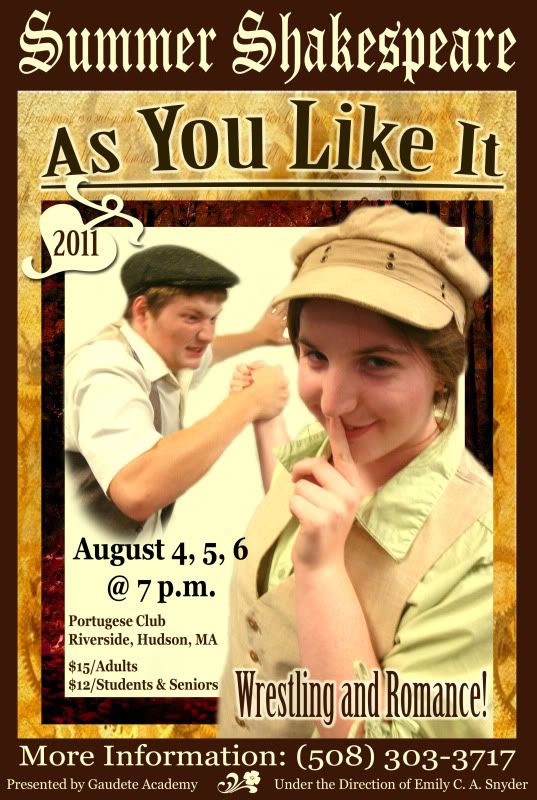
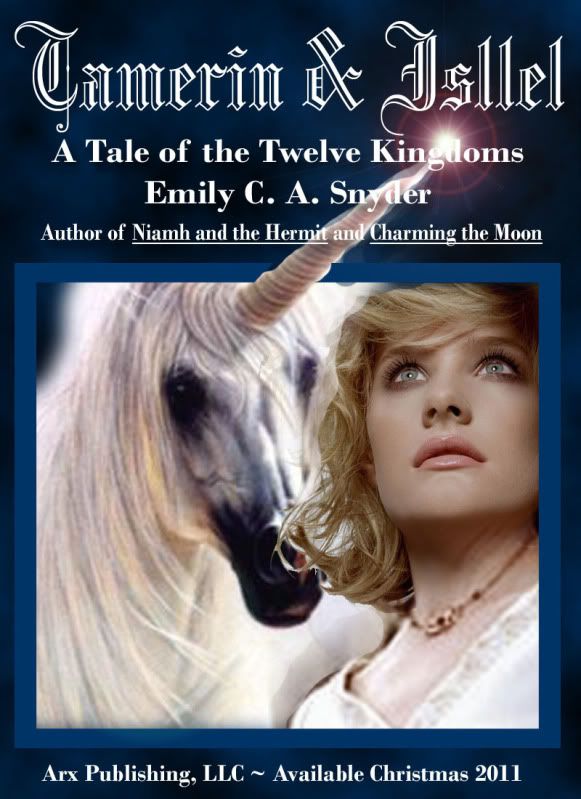
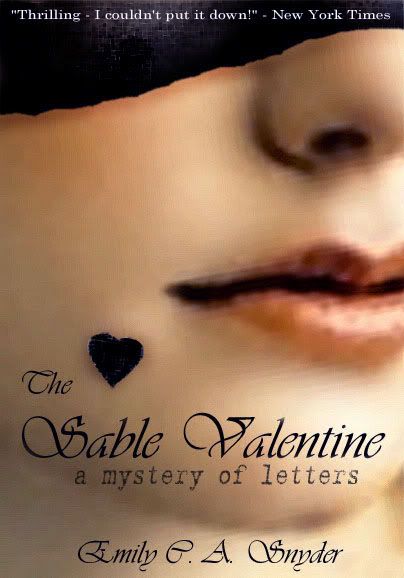






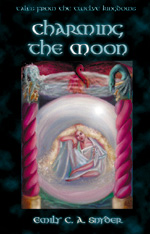


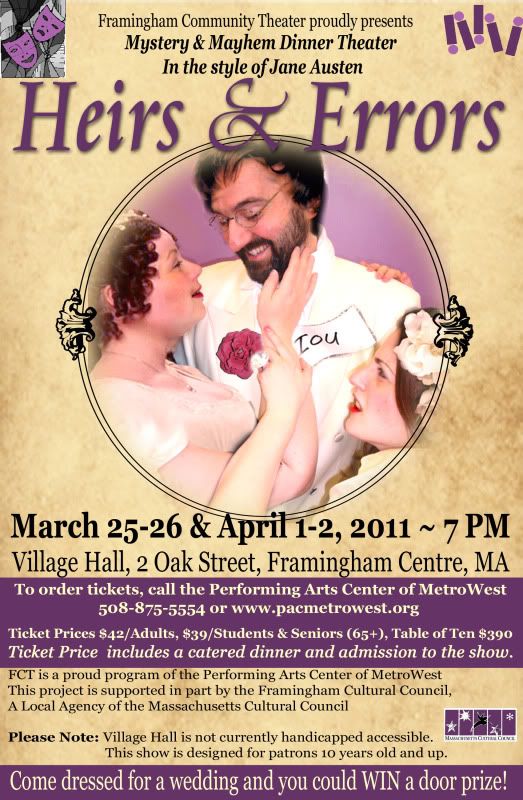

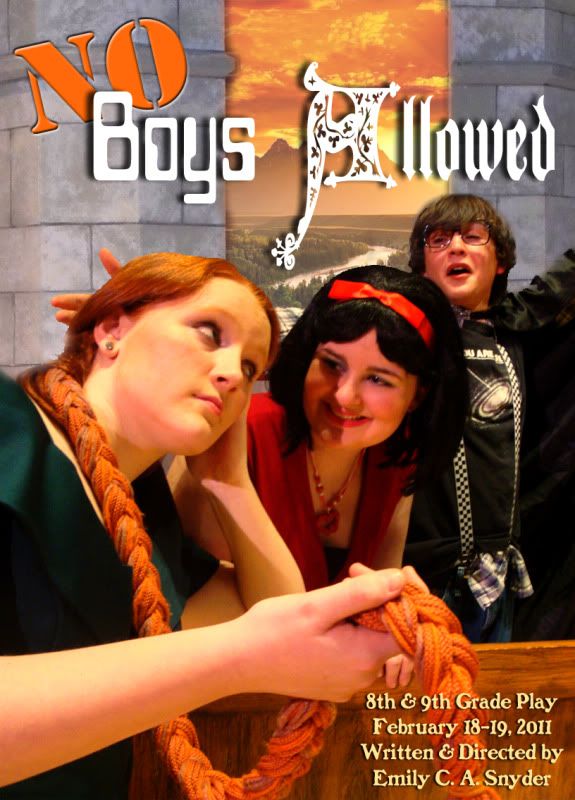


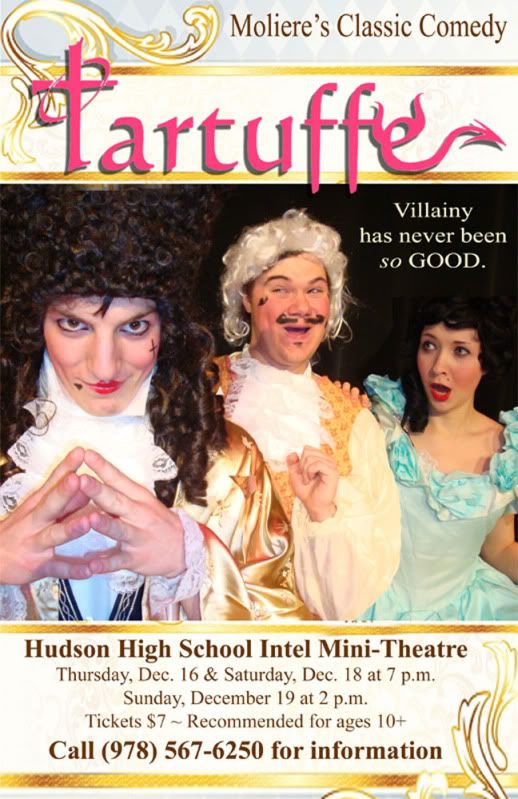
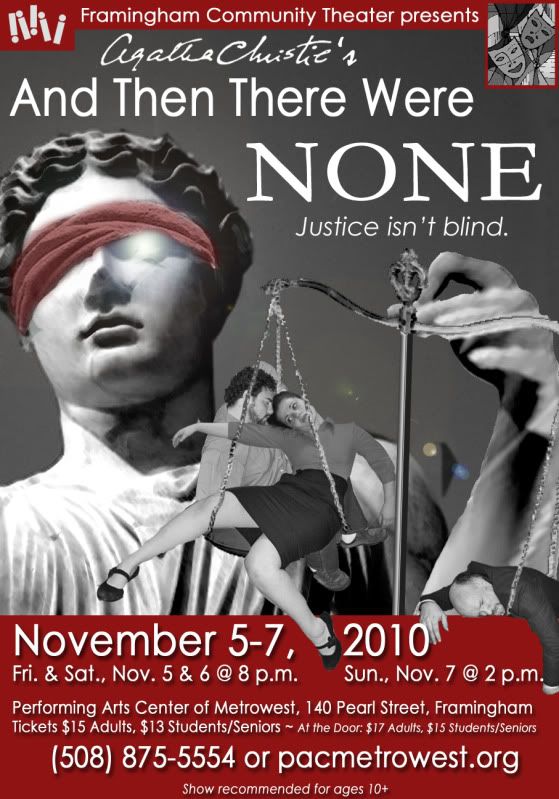
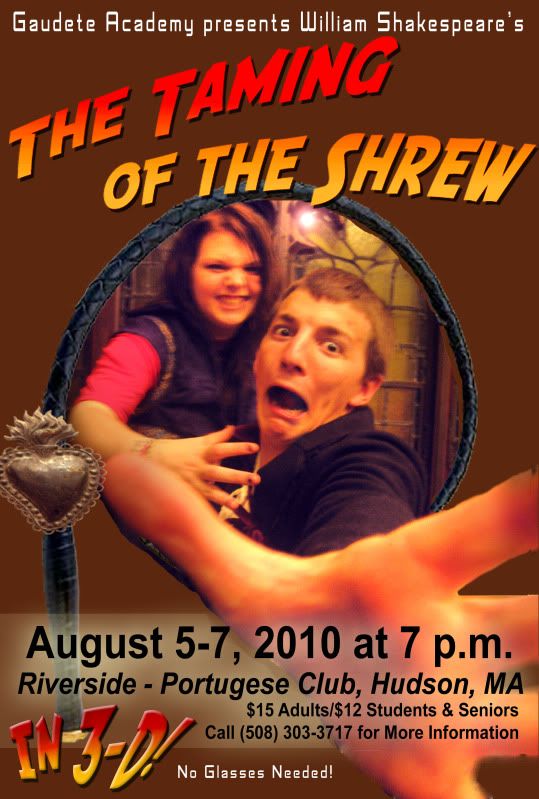

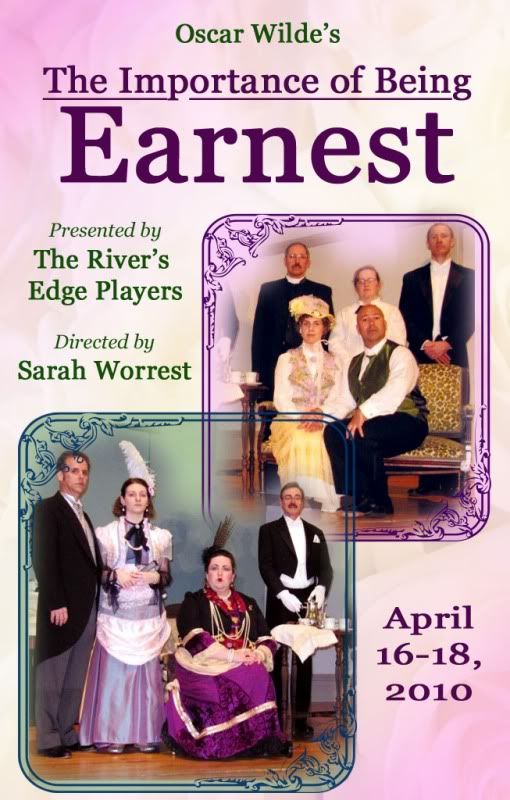
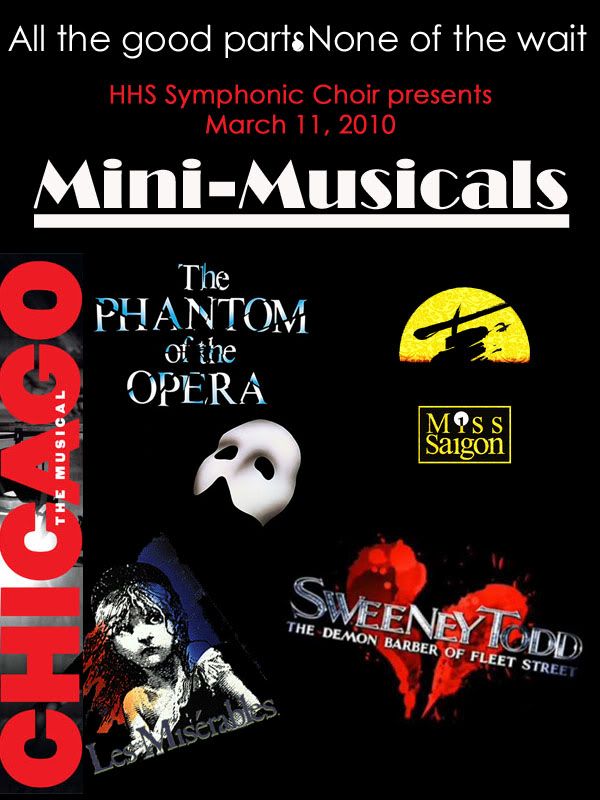



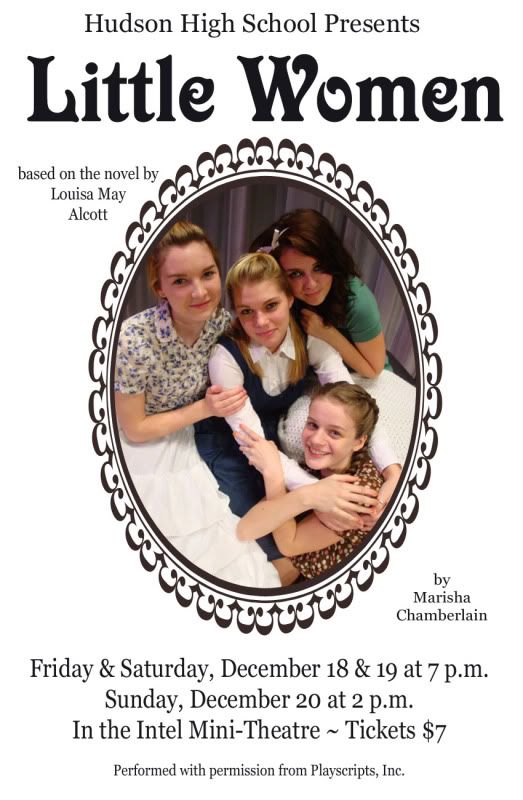
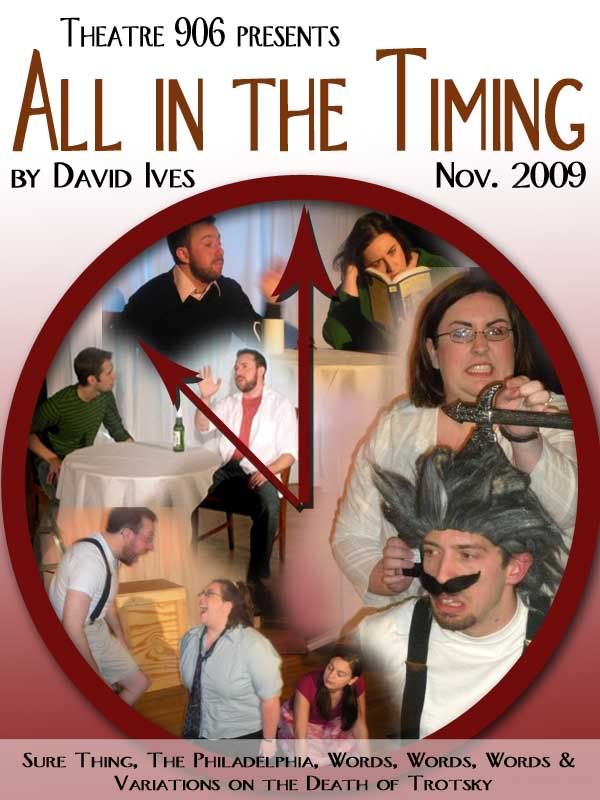
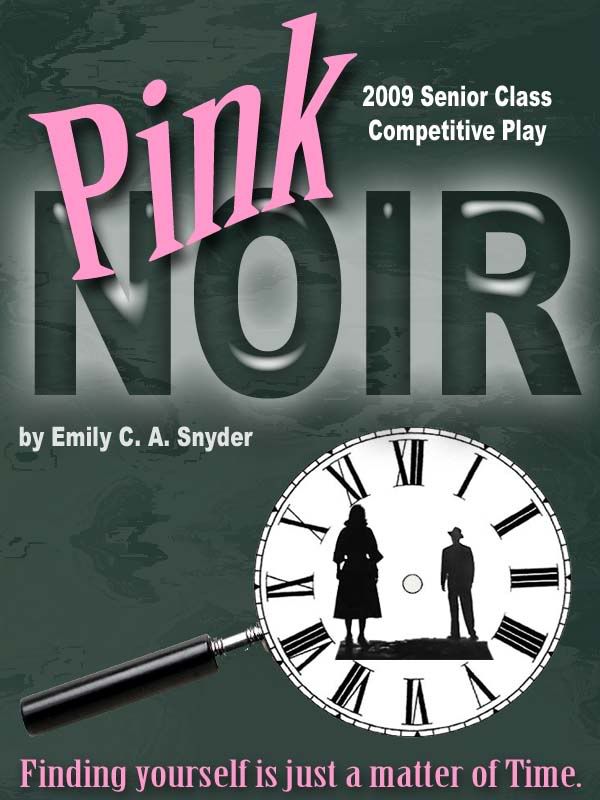
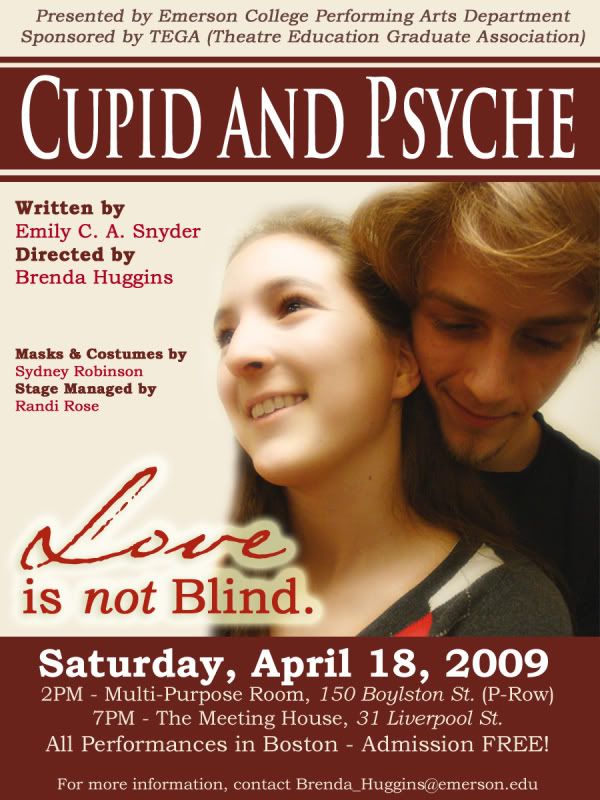
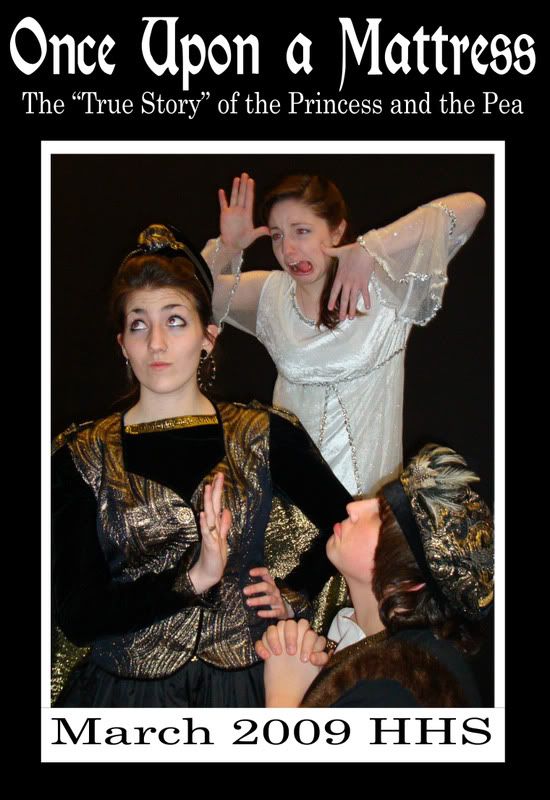


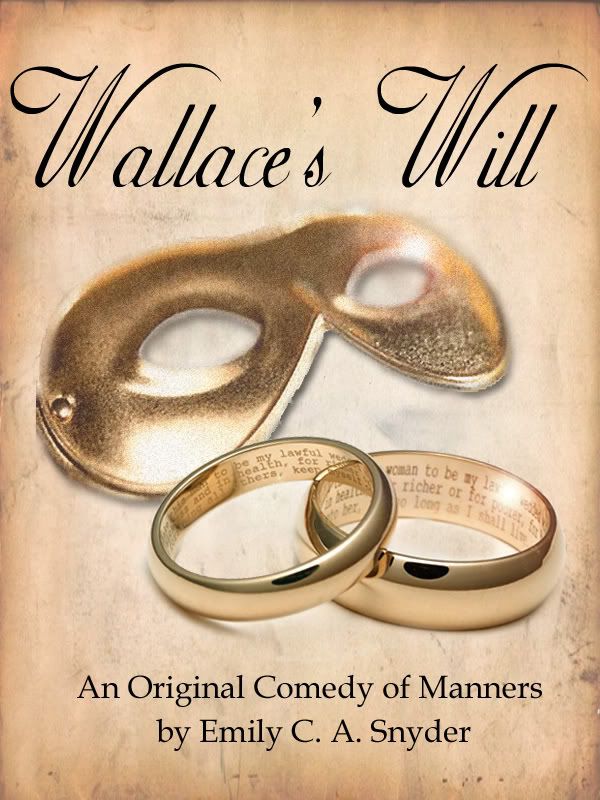


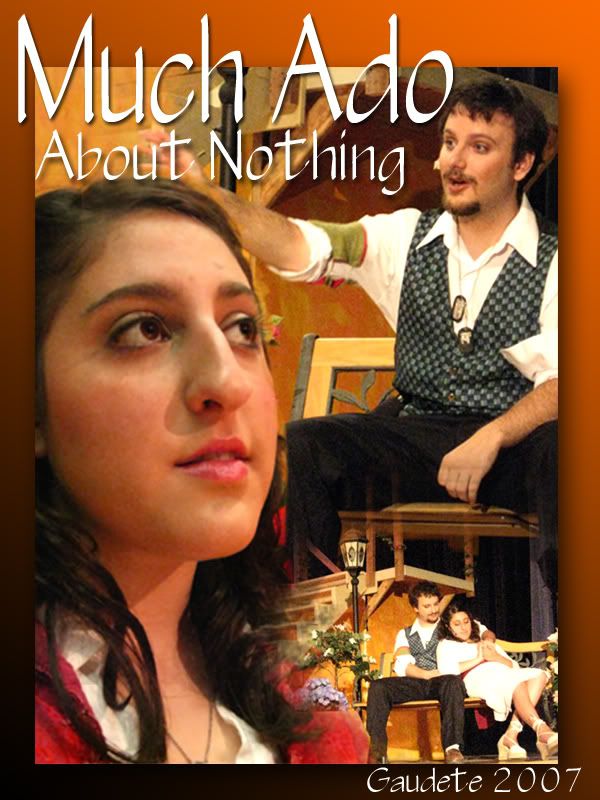
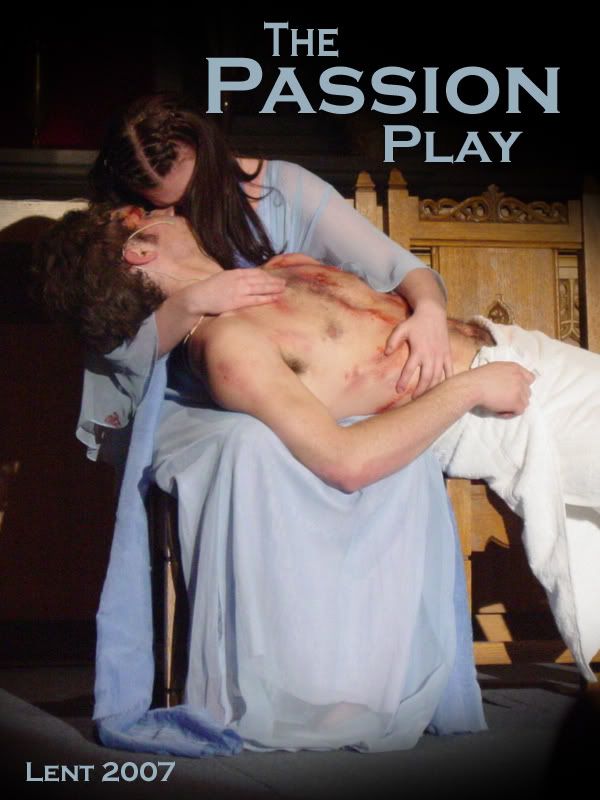
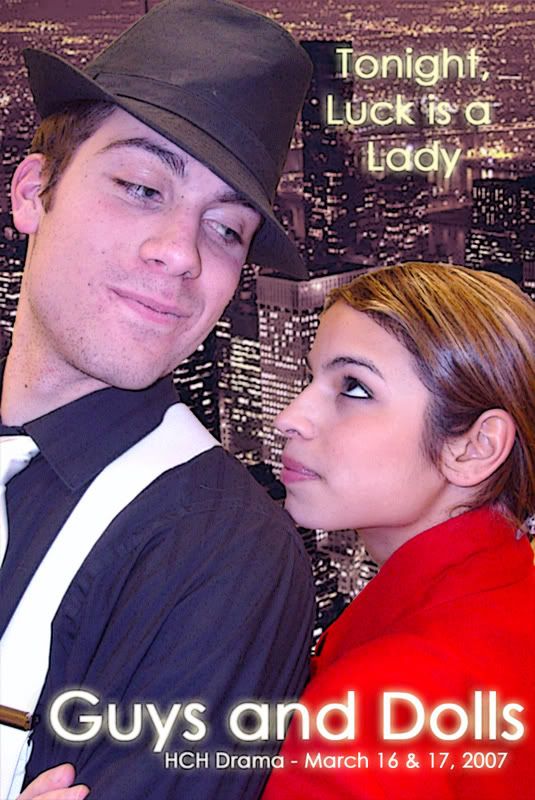
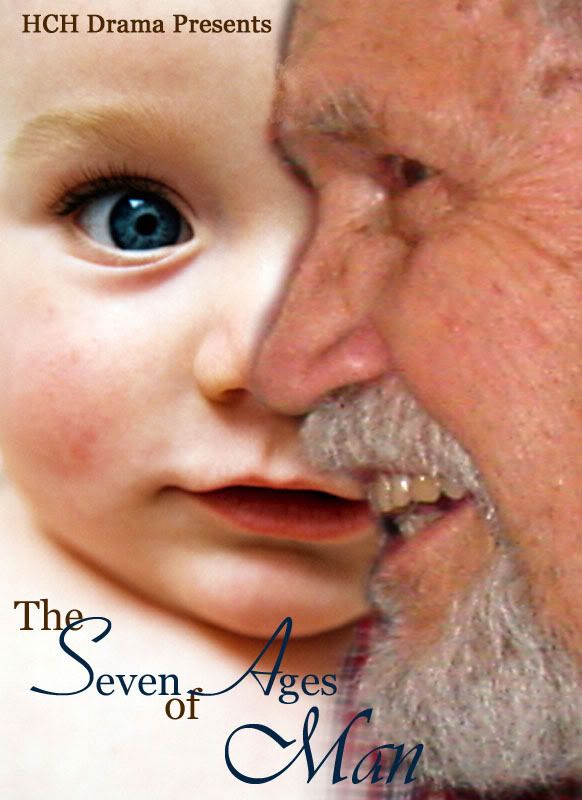

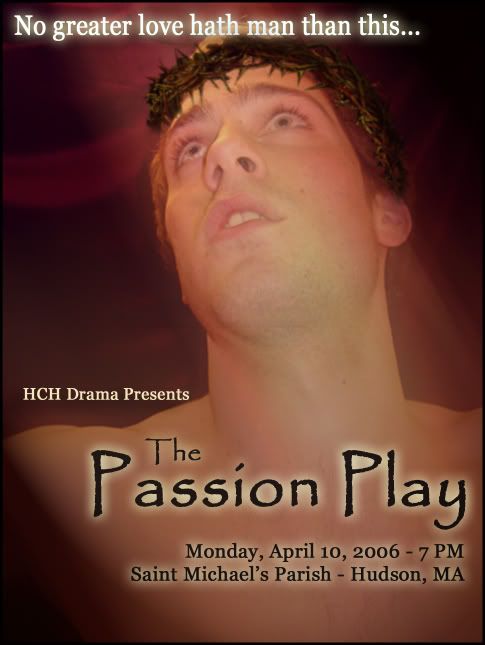
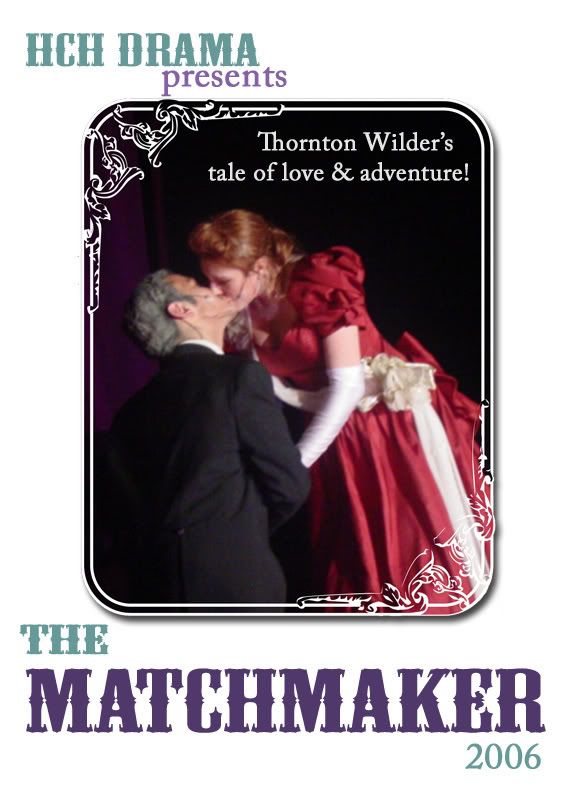








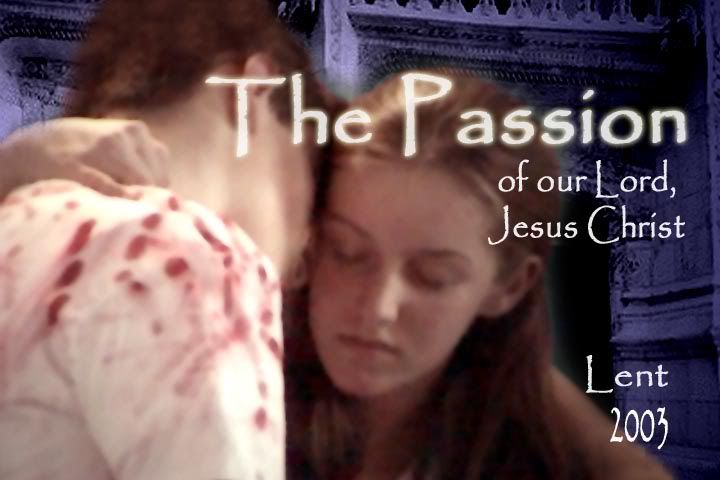

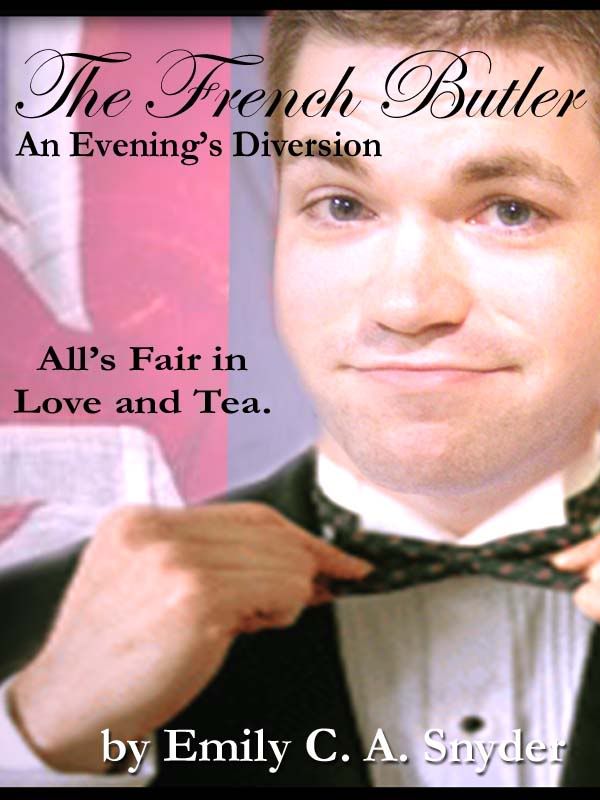
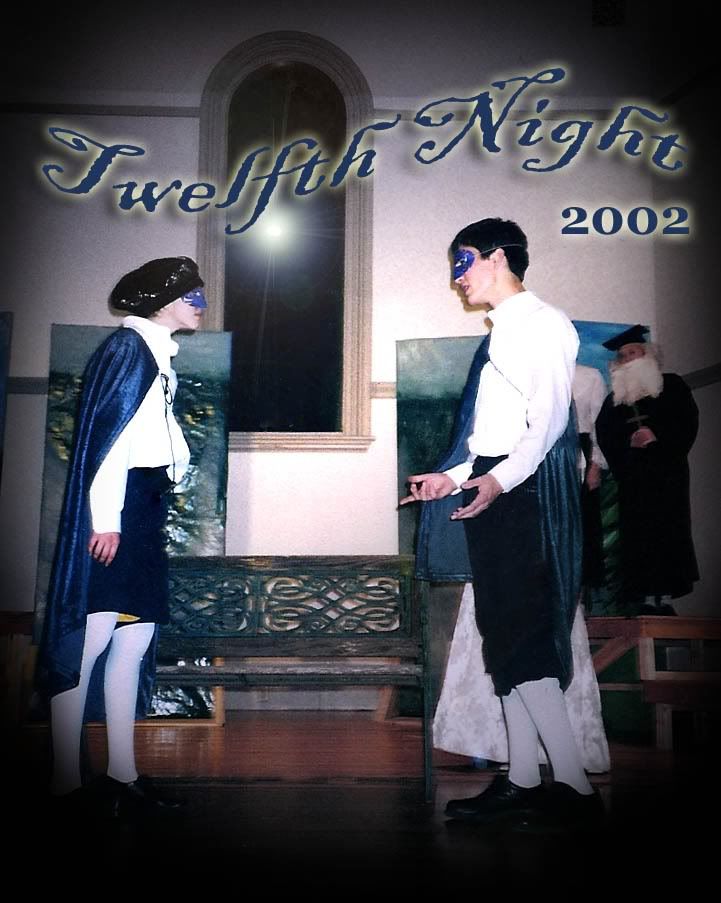

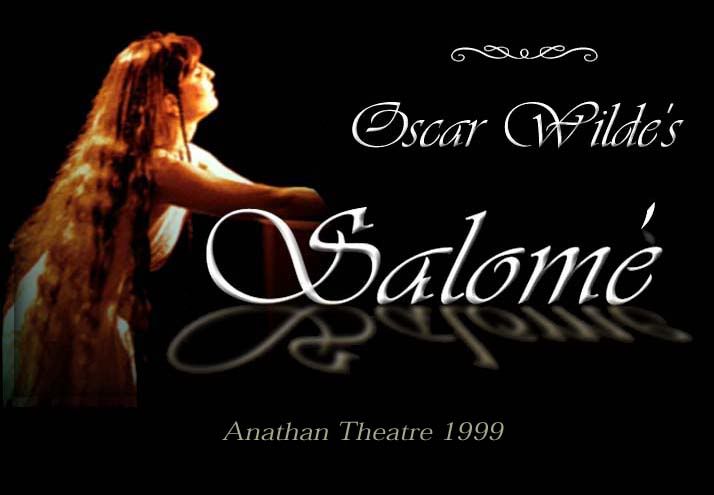


0 Comments:
Post a Comment
<< Home